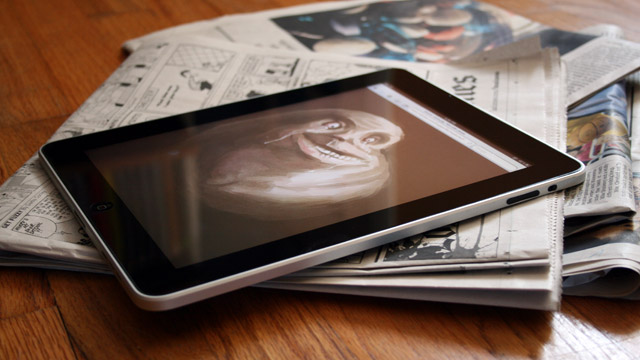I've realized recently that I'm just not very excited about tablets—anybody's tablets, no matter the OS or maker. I first realized I felt this way when I was only mildly disappointed (as opposed to heartbroken) to find myself too sick to attend the long-awaited (by me, anyway) webOS tablet unveiling. Since then, I've thought a lot about the roots of my tablet ennui, and I've narrowed it down to a few reasons.
My hands are in the way

A Google Image search turns up the above, quite typical picture of a scribe practicing his art. You'll notice that the scribe's desk contains two levels, where the topmost level holds an exemplar document and the bottom holds the document that he's actually working on. The scribe in the picture could be a copyist who's making a copy of the exemplar, or he could be a writer who's using the top copy as a source or reference. Either way, his basic work setup is the same as my modern monitor plus keyboard setup, in that it's vertically split into two planes, with the top plane being used for display and the bottom plane being used for input.
The key here is that the scribe's hands aren't in the way of his display, and neither are mine when I work at my desktop or laptop. My hands rest on a keyboard, comfortably out of sight and out of mind.
With a tablet, in contrast, my rather large hands end up covering some portion of the display as I try to manipulate it. In general, it's less optimal to have an output area that also doubles as an input area. This is why the mouse and keyboard will be with us for decades hence—because they let you keep your hands away from what you're trying to focus on.


 Loading comments...
Loading comments...
